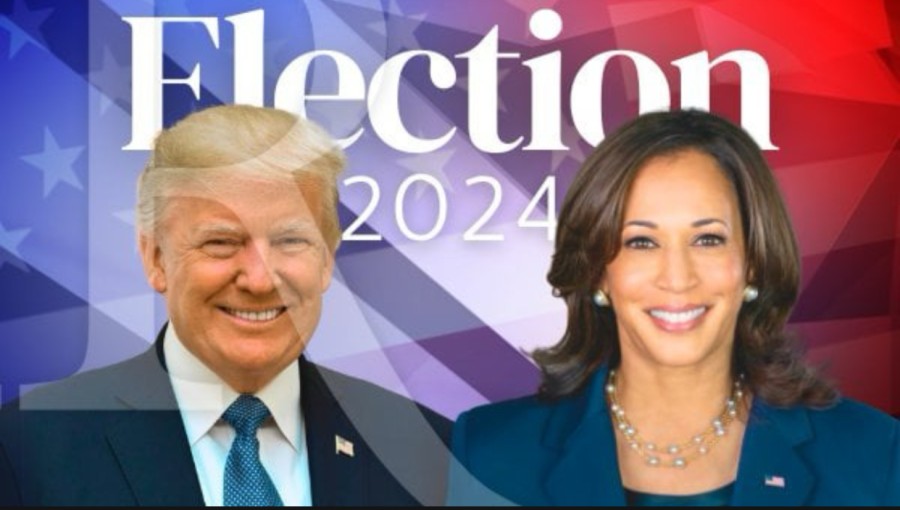New York, Oct 04 (V7N) – As the nation prepares for the 2024 U.S. presidential election, Michigan stands as a pivotal battleground. Recent data suggest that the state’s Black and Arab American communities could play a decisive role in determining the outcome, potentially influencing which candidate claims Michigan’s critical 15 electoral votes.
Historically, Michigan has been a Democratic stronghold at the presidential level, with the party consistently winning the state from 1992 to 2012. However, in 2016, Donald Trump secured a narrow victory, turning Michigan into a true swing state. Although Joe Biden reclaimed the state for the Democrats in 2020, winning by 3 percentage points, the race remains highly competitive.
Current Polling and Shifts in Voter Demographics
As of now, Vice President Kamala Harris leads Trump by 2 points in Michigan, according to recent polls. However, this lead is far from secure. Two key demographic groups—Black and Arab Americans—are showing signs of decreased Democratic support compared to previous elections.
Black voters, who make up about 13% of Michigan’s electorate, overwhelmingly supported Biden in 2020. However, recent polls show a 21-point drop in Democratic support among Black voters, raising concerns for the Harris campaign. Although polling data in past elections suggested larger shifts that didn’t fully materialize, the potential decline in support remains a significant issue for Democrats.
Another challenge for the Democratic Party comes from young voters, particularly in Michigan, where youth turnout was the highest in the nation during the 2022 midterms. Polls indicate a 13-point drop in support for Democrats among 18- to 29-year-olds, a demographic that is crucial to Democratic victories. The ongoing war between Israel and Hamas has sparked protests among college students, further complicating efforts to regain support from this group.
Meanwhile, Arab Americans, who constitute around 4% of Michigan’s population, have also shown signs of shifting allegiances. In 2020, Arab Americans leaned heavily Democratic, but recent polls indicate a sharp decline in Democratic support, with Trump and Harris nearly tied among the demographic. This shift is driven, in part, by disillusionment with the Biden administration’s response to the Israel-Palestine conflict, prompting many to explore third-party options or abstain from voting altogether.
Key Issues Impacting the 2024 Election
Economic concerns remain a top priority for Michigan voters, reflecting national trends. Yet, issues like abortion continue to resonate strongly in the state, even after the passage of Proposition 3, which enshrined abortion rights in the Michigan constitution. Polls show that 16% of Michigan voters cite abortion as a critical factor in their decision-making, positioning the issue alongside the economy in terms of voter importance.
Interestingly, despite the heightened attention on the Israel-Hamas conflict, this issue appears to rank lower in importance for Michigan voters as a whole. In recent surveys, less than 1% of respondents identified the Middle East as their top concern, though it remains a significant topic for certain communities, particularly Arab Americans.
Down-Ballot Implications
Michigan’s U.S. Senate race is also in the spotlight as Democrats look to maintain control of the seat held by retiring Senator Debbie Stabenow. Democratic Rep. Elissa Slotkin is currently leading Republican Mike Rogers by 5 points, but the race remains competitive. Additionally, Republicans are aiming to win back key U.S. House districts and flip the state House of Representatives, which Democrats narrowly won in 2022.
With so many factors at play, from shifting voter demographics to critical down-ballot races, Michigan is once again set to be a decisive state in the 2024 election. Both parties are gearing up for a fierce battle, knowing that the outcome could shape the future of U.S. politics.
END/NYC/SMA/AJ/



























Comment: